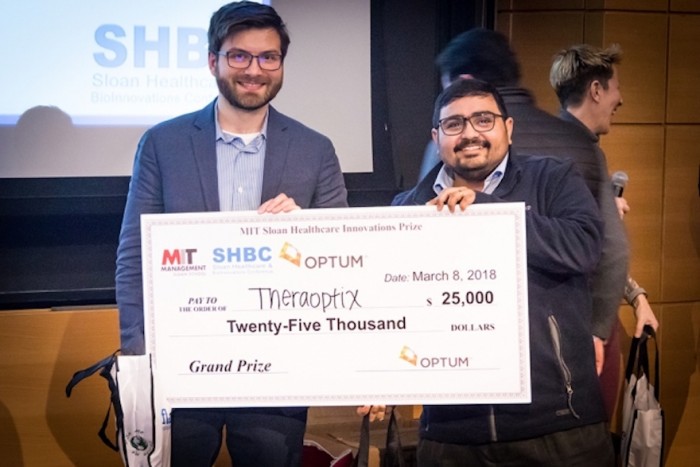Researchers are always figuring out new ways to use what’s already at our disposal and this new concept from a team at MIT is no different. The winners of this year’s MIT Sloan Healthcare Innovation Prize competition are developing contact lenses that deliver medications directly to the eye over days or weeks.
Why? Because when treating conditions like glaucoma, the leading cause of blindness in the US, physicians have noted that patients do not always take their prescribed medication in eye-drop form.
Read More: Dr William Mapham says designers are important to the future of healthcare
“...six months into therapy, patients will stop taking medications,” explains MIT team member Lokendra Bengani, a postdoc at Schepens Eye Research Institute of the Massachusetts Eye and Ear Infirmary.
“They have to take about four drops per day, so they stop,” he added. “We’re hoping this lens can help them comply without having to do anything else.”
Eye drops are also sometimes ineffective because the liquid drips out of the eye.
Under the company name Theraoptix, Bengani and his team are developing contact lenses from FDA-approved materials. The lenses deliver eye medication in a controlled, sustained release thanks to the design’s sandwich structure.
A medication-filled polymer is sandwiched between contact lens material. The tiny circular strip doesn’t interfere with the wearer’s vision. The drug gradually seeps from the film into the eye.
Read More: Quicksee is making eye care accessible, affordable with low-cost tech
According to MIT News, the lenses can be worn all day for up to two weeks. Moreover, the lenses can effectively deliver drugs to the back of the eye to treat macular degeneration, diabetic retinopathy, retinal vein occlusion, and other diseases that today require in-office injections.
Theraoptix’s core technology was developed nearly a decade ago in the lab of Daniel Kohane (now at Boston Children’s Hospital), located at David H. Koch Institute Professor Robert Langer's lab at MIT, by ophthalmologist Joseph B. Ciolino, Bengani’s mentor at the Massachusetts Eye and Ear Infirmary.
Eight teams pitched novel health care inventions at the annual MIT Sloan Healthcare Innovations Prize competition, held as part of the 16th annual MIT Sloan Healthcare and BioInnovations Conference. The team, Theraoptix (pictured above), took home the $25 000 grand prize, sponsored by health services firm Optum, for contact lenses that deliver medications directly to the eye over days or weeks.







